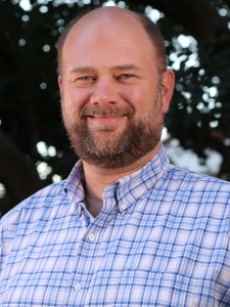
office hours
Dr. Benjamin Jens received his Ph.D. in Slavic Languages and Literature from the University of Wisconsin-Madison. His main area of research is 19th-century Russian literature – especially the works of Fyodor Dostoevsky – with a focus on the relationship between literature, discourse, and Eastern Orthodoxy. He also has research interests in Eastern European cinema, science fiction, and cultural ties between the Western Balkans and Russia. Dr. Jens is also the director of the Arizona in Russia study abroad program in Moscow, Russia.
Select Publications
- Jens, Benjamin, et. Al. “Oral History in the Russian Language Curriculum: A Transformative Experience.” The Art of Teaching Russian, eds. Evgeny Dengub, Irina Dubinina, and Jason Merrill, Georgetown University Press, 2020.
- “Silence and Confession in The Brothers Karamazov.” Russian Review, vol. 75, no. 1, 2016, pp. 51–66.
Courses Taught:
- RSSS 275 – Eastern Europe & the Balkans (EP-Humanist - World Cultures and Societies, Diversity and Equity)
- RSSS280 – Sports and Empire (Building Connections – World Cultures and Societies)
- RSSS304 – History of Soviet and Post-Soviet Film (EP-Humanist – World Cultures and Societies, Writing)
- RSSS310 - Red Stars, Cosmonauts, and Robots: Soviet and East European Science Fiction (EP-Humanist - World Cultures and Societies)
- RSSS315 – Werewolves and Vampires: Slavic Folklore in our Culture (EP-Humanist - World Cultures and Societies, Diversity and Equity)
- RSSS325 – Eastern Orthodoxy in a Global Age (EP-Humanist – World Cultures and Societies)
- RSSS335 – Healthy Places, Toxic Spaces (Building Connections - World Cultures and Societies, Diversity and Equity)
- RSSS340 – The Pen and the Sword: Russian Writers and Autocracy (1825-1905) (EP-Humanist - World Cultures and Societies, Writing)
- RSSS360 – Utopian Visions: East European Visual Culture (EP-Artist – World Cultures and Societies)

